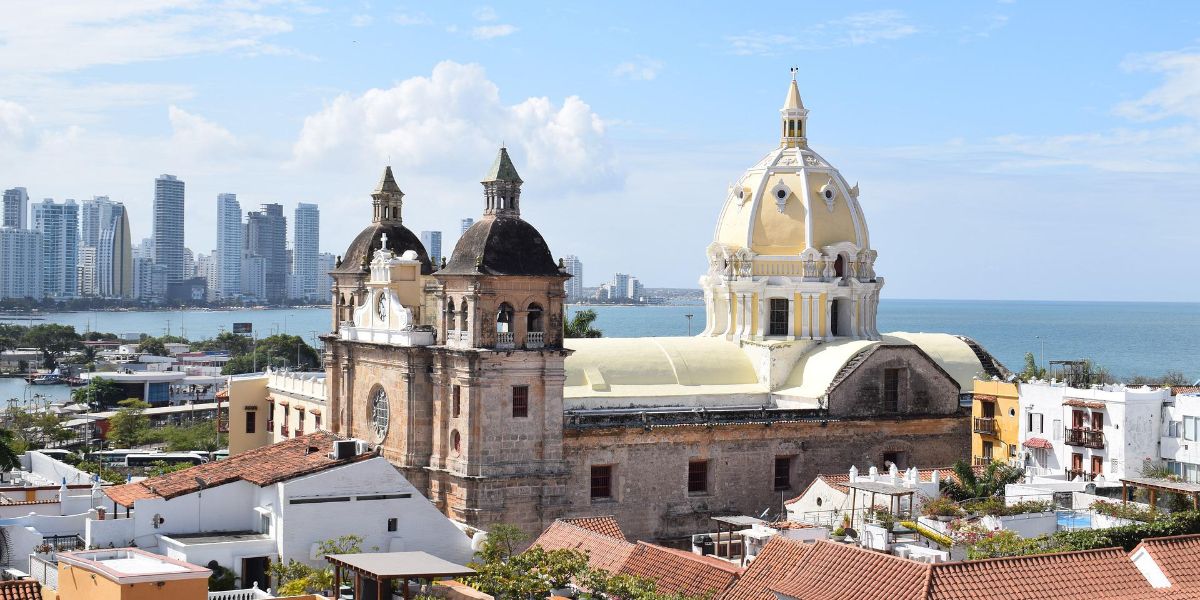In a speech delivered in Colombia on 19 May 2016 the Director General of the World Trade Organization (WTO) noted that trade can act as a drive of broader economic growth and job creation and is part of any strategy for sustainable economic growth. Technology has been changing quickly and new economies have emerged. The share of developing countries in global merchandise trade has increased from 27% to more than 43% in the past twenty years. Production chains have become increasingly international.
Even apparently simple products are often made in complex global networks of production generally referred to as global value chains. These are viewed positively as a developing country can concentrate on developing the skills and infrastructure for production in one part of the value chain. However developing countries still experience difficulty in joining the value chains and find it more difficult to move up the chain to make higher value added components.
Colombia’s participation in global value chains amounts to around 38% of exports which may either use imported components or become components for products in other countries. The average figure for developing countries generally is however 48%.
The Director General noted that the WTO’s global trade rules, combined with further reforms to those rules, can help Colombia further integrate into global value chains. The WTO rules offer an open, transparent, rules-based platform for doing business overseas. The rules help to avoid unilateral, discriminatory or arbitrary measures. Around 98% of world trade takes place under the WTO’s framework of rules. It also provides a forum for dialogue and information sharing.
The WTO’s dispute settlement arm helps to settle trade disputes in an open and transparent manner and in the past twenty years the WTO has dealt with more than 500 trade disputes. Colombia has participated in 58 of those cases either as a complainant, respondent or interested party so the country clearly sees value in the process.
The Director General emphasized the importance of the Trade Facilitation Agreement. The cost of moving goods across borders can be a barrier that prevents businesses trading internationally, especially small and medium enterprises (SMEs). The Trade Facilitation Agreement could cut Colombia’s trade costs by up to 13%. The agreement could therefore help Colombia compete internationally and integrate into global production chains. For developing countries generally the Trade Facilitation Agreement could increase exports by USD 730 billion per year and total global merchandise exports could increase by up to USD 1 trillion per year.
In December 2015 in Nairobi the WTO members agreed to abolish agricultural export subsidies. The elimination of this type of support which distorts trade could help to create a level playing field in agricultural markets. This would benefit the farmers and exporters of Colombia. The Nairobi agreement also included measures on food security and support for export of goods and services by least developed countries.
Colombia is also participating in the expanded Information Technology Agreement that aims to eliminate tariffs on many IT products including latest generation semiconductors, GPS devices, advanced medical products and machine tools. This agreement would lower the cost of doing business for companies in Colombia and help integration into global markets. These products account for around 10% of global trade and the Director General commented that the agreement will reduce tariffs to zero. This agreement would lower the costs for companies of all sizes in Colombia because it would lower input prices for all companies that use IT products as inputs.
The Director General also emphasized the importance of Colombia’s engagement in trade negotiations. For example Colombia can participate in regional agreements, which work well with the global system under the WTO. Also the WTO members want to deliver on the current negotiating issues including improved market access for agricultural produce, industrial goods and services. WTO members would also like to begin discussions in future on other issues such as steps to support small and medium sized-enterprises; issues surrounding e-commerce; investment facilitation and fisheries subsidies.













